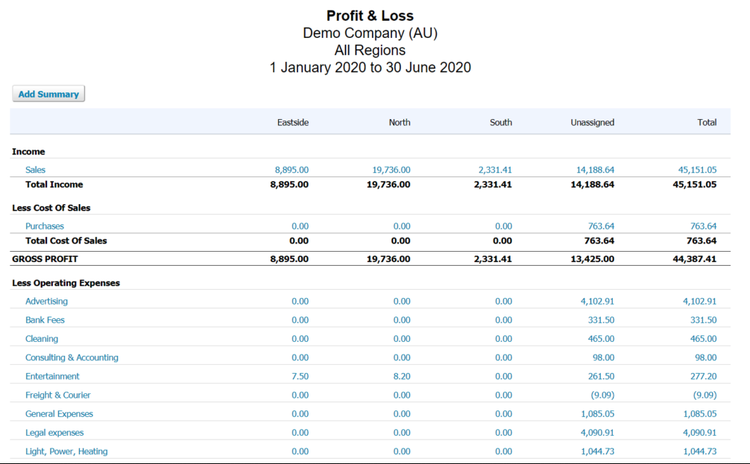Real estate investing looks very different from how it looked 10 years ago and very, very different from how it looked 50 years ago.
Traditionally, the domain of real estate investment has been dominated by institutional investors and high-net-worth individuals, which marginalized many potential investors. Back in the day, a super-rich guy or a shadowy conglomerate could buy a property or properties and ruthlessly extract rent and reap all of the investment profits.
This still happens, yet real estate investing has flattened to the extent that it is more transparent, and no longer the exclusive domain of the “old boy’s club.”
Real estate crowdfunding platforms, like EquityMultiple, are democratizing access to this lucrative asset class, allowing a broader spectrum of investors to participate. This shift not only opens new avenues for wealth creation but also can promote more progressive and socially beneficial real estate investment practices.
Breaking down barriers to entry
Historically, real estate investment opportunities have been largely accessible only to the ultra-wealthy and often excluded minorities and women from these wealth-building investment initiatives. Traditional underwriting by institutional lenders tends to favor established, low-risk areas, further entrenching socioeconomic disparities.
This model precludes investment in communities in dire need of revitalization and updated housing stock. This isn’t a far cry from the sad legacy of redlining in the U.S. A developer or real estate operator considering assets to acquire or a neighborhood to invest in may find opportunities that pencil out to be otherwise, but debt capital is elusive because traditional lenders see risk in historically underinvested areas. This may no longer take the form of overt racism, yet it remains a regressive dynamic in real estate finance.

Real estate crowdfunding platforms may be able to ameliorate these inequities by lowering the barriers to entry. By pooling resources from a large number of small investors, these platforms can finance projects that traditional lenders might deem too risky.
This democratization allows individuals from diverse backgrounds to invest in real estate, thereby promoting economic inclusivity and fostering community development. Capital from real estate crowdfunding platforms can also help to drive activity for “middle-market” real estate firms that can move more nimbly into neighborhoods needing quality housing stock.
Empowering community development
A significant advantage of real estate crowdfunding is the potential to drive investment in underserved areas. Traditional institutional investors often overlook these regions due to perceived higher risks and lower immediate returns.
In real estate jargon, this may mean venturing into “value-add” real estate investment, where capital improvements are required and some amount of leasing activity is required for the investment to pencil out. This is in contrast with the ‘core’ and ‘core-plus’ investments favored by institutional investors, where properties are stabilized and near-term rental income is more assured.
Real estate crowdfunding can mobilize capital for projects that rejuvenate these communities, providing modern housing and commercial spaces that can stimulate local economies.
By focusing on community-oriented developments, these platforms contribute to the creation of affordable housing, green buildings and mixed-use developments that enhance urban livability. This form of investment can be one prong in a multi-prong approach to addressing the affordable housing crisis while promoting sustainable urban growth.
Facilitating diverse investor participation
Let’s not mince words — real estate has historically been the province of old white guys. Crowdfunding platforms are actively changing this narrative by welcoming a more diverse group of investors. Women and minority investors, traditionally underrepresented in real estate, now have a platform to participate and benefit from the wealth-generating potential of real estate investments.
We see this both in terms of the “crowd” and in terms of the financing side. In the old days, if you wanted to invest in private-market real estate as an individual, you’d often need to be connected with someone, and then talk about offline syndication, often on a golf course or at a country club, then have $250,000 or more to participate.
With the real estate crowdfunding model, anyone with an active internet connection, and enough capital to responsibly participate, can access these same sorts of investments. Per-invesmtent minimums are often as low as $10,000. In practice, this means our investor base is very diverse, including many first or second-generation immigrants. On the finance side, the model allows a more diverse set of operators and developers to access alternative sources of capital and invest in neighborhoods that may otherwise be passed over by traditional capital sources.
By offering a variety of investment options with different risk and return profiles, platforms like EquityMultiple cater to a broad range of investor preferences and financial capabilities. This inclusivity not only enhances the social fabric of the investment community but also introduces a wider array of perspectives and priorities into real estate finance and its impact on the built environment.
Promoting financial education and empowerment
Beyond providing access, real estate crowdfunding platforms play a crucial role in educating new investors. Platforms often offer resources and tools to help investors understand the complexities of real estate investments, including risk assessments, market trends, and return projections. This educational aspect is vital for empowering individuals to make informed investment decisions.
EquityMultiple provides detailed information about each investment opportunity, including its potential impact on the community. This transparency helps investors understand the social and economic benefits of their investments, fostering a sense of responsibility and engagement with the projects they support.

This is where stewardship and safeguards come into play. For individual investors who may have little real estate investing experience, this means thoroughly covering risk factors and guiding investors toward the types of opportunities that fit their strategy and are appropriate for their financial situation. Investments on real estate crowdfunding platforms can generate substantial returns, but not every investment is a home run, and there is the possibility of loss of principal.
As platforms broaden access, it is critical that they also make risks known. Concerning the projects that platforms take on, this means keeping a focus on investments that will enhance or expand housing stock and opportunity, rather than cause displacement of median-income or lower-income renters. In practice, this means generally prioritizing Class B and Class C multifamily, rather than luxury or Class A and lower-density development. Meanwhile, rehabbing older vintage properties with higher efficiency appliances, building materials, and practices is often the more environmentally responsible, carbon-smart type of real estate investment.
Addressing market volatility and economic shifts
In an era of economic volatility and market fluctuations, private real estate investments can provide a stable and attractive alternative to public markets. As highlighted in recent market perspectives, traditional banking institutions have scaled back their lending activities, creating opportunities for private lenders and crowdfunding platforms to fill the gap.
This shift is particularly relevant in 2024 and offers a breadth of private market opportunities amidst the ongoing repricing of assets and risk.
The bottom line — the role of real estate crowdfunding going forward
Real estate crowdfunding breaks down traditional barriers and enables more progressive, open, and even socially beneficial forms of real estate investment. By democratizing access, empowering diverse investors, and promoting community development, platforms like EquityMultiple are transforming real estate finance and contributing to a more equitable and inclusive economic future.
The industry is still young, and as real estate crowdfunding platforms evolve, they should strive to make investment options more inclusive while helping investors properly understand risk. Given the opportunity, platforms can and should adopt definitions and standards for the potential social impact of investments offered.
On the flip side, individual investors who are interested in SRI real estate investing options should make their demands clear to real estate crowdfunding platforms. As the young industry evolves, such input is critical to crafting investment products that fit the market. By leveraging technology, fostering financial education, and prioritizing social impact, these platforms can drive sustainable growth and create long-term value for both investors and communities.
In summary, real estate crowdfunding is not only an alternative investment vehicle; it can be a catalyst for change, offering a pathway to inclusive wealth creation and community revitalization.
Read more: 2 ways to build wealth through real estate equity investing



